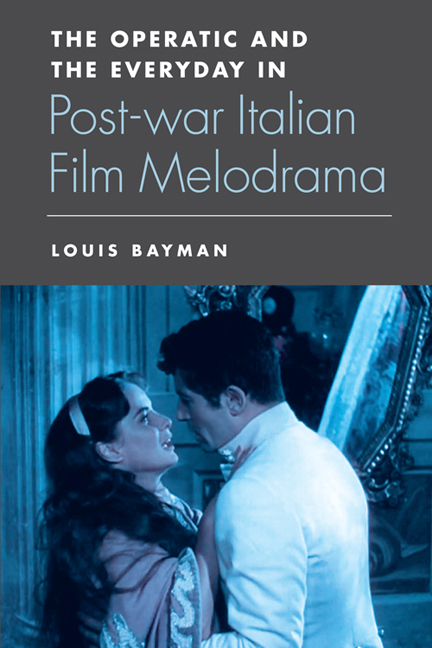Preface
Published online by Cambridge University Press: 05 August 2016
Summary
Scholars of popular culture come to a point at which, to get closer to their topic, they must turn around Baruch Spinoza's principle not to laugh, not to cry, not to hate, but to understand, and aim instead to laugh, to cry, and to hate, so as to understand. Certainly laughter, tears and hatred have attended the viewing that went into the following study, occasionally its writing. I might hope less so in the reading, for such reactions are not the book's primary intended purpose. That is instead fairly straightforward: to offer methods for understanding a group of films which, for the brief period of their greatest popularity, depended at a mass level on the intensest emotionality.
More specifically, the book is about melodrama in Italian cinema, mostly in the post-war period, and its broader connections to life and culture. My consideration of the topic has taken up a large part of the last decade, which I must say has often made social situations awkward, for the subject poses the combined embarrassments of being relatively obscure, of lacking both gravity and cool, and, most embarrassing of all, of being predicated on taking feelings seriously, in an open, displayed and unbounded form. Somewhat stretching what I believed to be the confines of the politically correct, I was informed by one prominent Marxist-Feminist that only women and gays were interested in melodrama. I thanked her for the original analytical framework and her care to alight my attention on the cultural constructions surrounding emotion. Outside of the conference circuit, if feeling lazy I might say only that I'm writing on Italian cinema, if radical, on popular culture, if flirtatious, on romance, before glancing furtively away. If bored, then ‘Italian films – you won't have heard of them’. Needless to say, it has not been a process through which it was easy to win friends. Many kind acquaintances smatteringly conversant with Italy have corrected me to tell me ‘You mean neorealism/Fellini/ Pasolini’, but, on the whole, I don't, and the ploughing of this particular scholarly furrow has tended towards the solitary.
- Type
- Chapter
- Information
- The Operatic and the Everyday in Postwar Italian Film Melodrama , pp. viii - xiiPublisher: Edinburgh University PressPrint publication year: 2014



